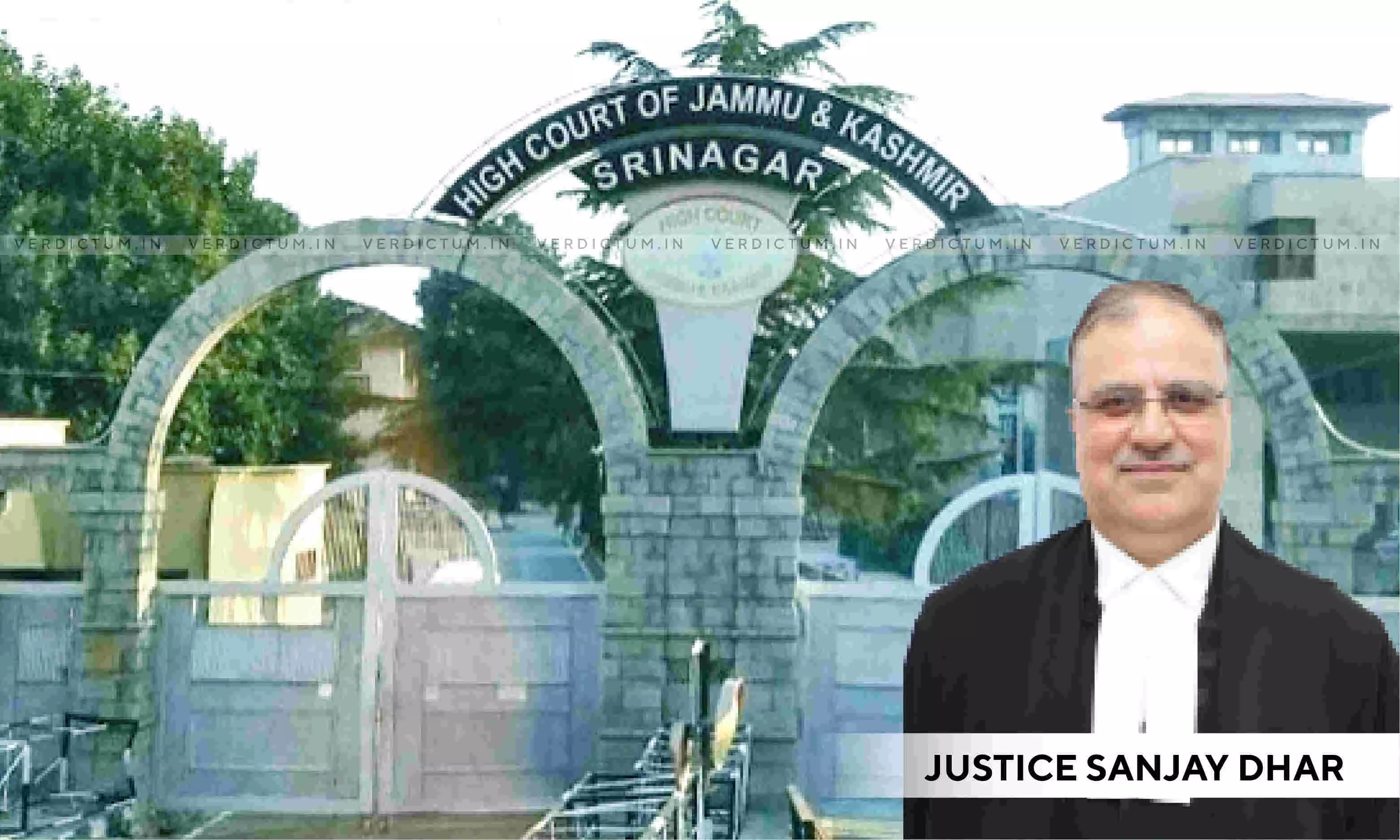
Newspaper Reports Are Hearsay; Cannot Be Treated As Proven Facts Without Author’s Corroboration: Jammu & Kashmir & Ladakh HC
 |
|The Jammu and Kashmir and Ladakh High Court has held that statements in newspapers are hearsay and cannot be treated as established facts unless corroborated by the author.
The Single-Bench of Justice Sanjay Dhar made the observation while dealing a case involving the electrocution death of Satya Devi due to alleged negligence by the Power Development Department (PDD).
The petitioners, Balwant Singh and Munish Singh, sought Rs. 25 lakhs as compensation for the death of their 45-year-old mother, Satya Devi, who died on June 28, 2007, after coming into contact with a live electric wire in the forest of Solki village. Despite villagers reportedly notifying the PDD about the broken wire 19-20 days before the incident, no action was taken.
Advocate Ashok Sharma appeared for the Petitioner, and Advocates Pallavi Sharma and Ravinder Gupta appeared for the Respondent.
Rejecting the respondents' reliance on a Daily Excelsior news report attributing the death to lightning, the court observed, "A statement of fact contained in a newspaper is merely hearsay and, in the absence of the statement of the maker of the news report, the same cannot be relied upon as a proved fact."
The Court underscored the post-mortem report, which confirmed electrocution as the cause of death, and corroborated police findings that the live wire was tied to an electric pole but lay on the ground. The court also invoked Rule 77 of the Electricity Rules, 1978, which mandates a minimum ground clearance of 13 feet for electric wires, noting the PDD's failure to maintain this standard constituted negligence.
Citing the doctrine of strict liability from Rylands v. Fletcher and the precedent set in Madhya Pradesh Electricity Board v. Shail Kumari, the Court held, "The omission on part of the officials of the respondent-department in discharging their duty would certainly amount to negligence on their part, and the respondent-department would vicariously become liable to compensate for the damage to the life and property which may ensue because of negligence or lack of care on part of its officials."
The Court directed the respondents to pay Rs. 10 lakhs in equal shares to the petitioners within two months, with 6% annual interest for any delay. "In view of the above, the writ petition is allowed and the respondents are directed to pay to the petitioners, a sum of Rs.10.00 lacs as compensation, which shall be payable to them in equal shares. The amount shall be paid to the petitioners within a period of two months from the date a copy of this order is made available to them, failing which, it shall carry interest @ 6% per annum from the date of filing of the writ petition till realization of the amount," the Court ordered.
Cause Title: Balwant Singh & Anr. v. State of Jammu and Kashmir [OWP No.498/2010]
Click here to read/download the Judgment